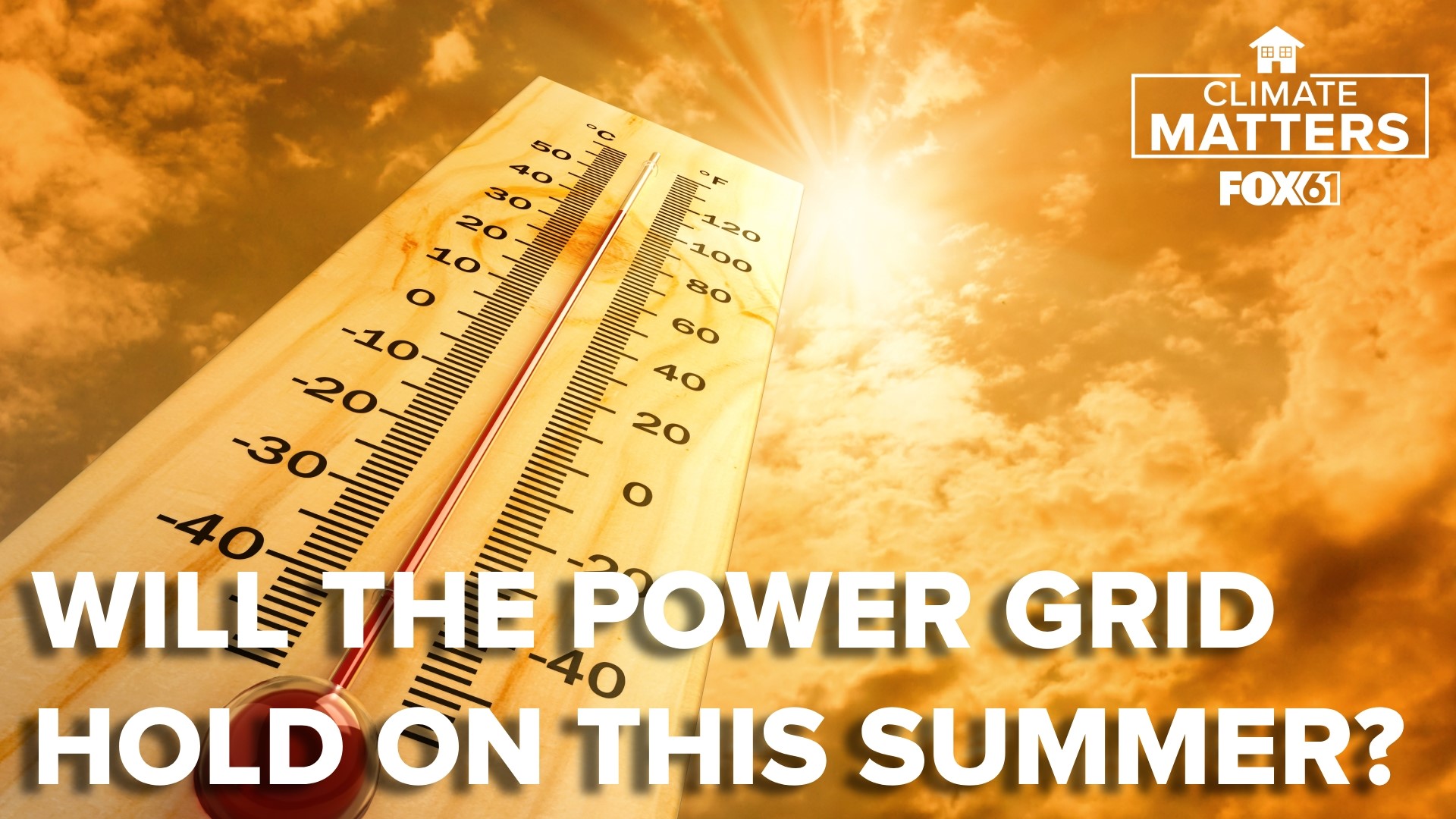HARTFORD, Conn. — It’s not too hot today, but even still, you might have the air conditioner running.
What about those summer days when everyone is running it on full blast?
Over the years, our power grid has become more resilient to summer blackouts caused by strain on the system. We still have plenty of outages from downed trees and powerlines in wind storms.
"In New England right now, we use the most energy in the summer, and that’s largely driven by air conditioning," according to Matt Kakely, from ISO New England, the operator of the bulk power system and transmission lines in all six New England states.
ISO New England recently released its summer energy outlook, expecting to have sufficient resources to meet consumer demand for electricity this summer, under typical weather conditions.
The organization prepares forecasts for the summer and winter seasons - when the grid is under the most stress.
More than 31,000 MW of capacity is expected to be available to meet consumer demand across New England this summer, according to ISO New England.
Under typical summer weather, the demand is forecast to peak at around 24,686 MW.
In longer stretches of heat and humidity, it’s forecast the demand could rise to more than 26,416 MW, well below capacity levels.
"We’re looking at historical weather and what consumer demand was during those periods, and we’re taking into account what’s changed," Kakely said.
One big change has been the expansion of solar power in New England, most panels on homes and businesses, known as "behind the meter".
This extra power, most efficient in the midday sun, is helping reduce stress on the grid during those hours.
Actual electricity use remains highest between about noon and 2 p.m. In the past, that's when the load on the grid was at its highest as well.
Now, with the help of solar, the load has been lessened some during the previous peak time.
"That's actually shifted the hour that we see the highest demand, now late afternoon into early evening," Kakely said, as demand from the grid increases when solar starts to become less effective with the setting sun.
Ryan Breton is a meteorologist at FOX61 News. He can be reached at rbreton@fox61.com. Follow him on Facebook, Twitter and Instagram.
---
Have a story idea or something on your mind you want to share? We want to hear from you! Email us at newstips@fox61.com
---
HERE ARE MORE WAYS TO GET FOX61 NEWS
Download the FOX61 News APP
iTunes: Click here to download
Google Play: Click here to download
Stream Live on ROKU: Add the channel from the ROKU store or by searching FOX61.
Steam Live on FIRE TV: Search ‘FOX61’ and click ‘Get’ to download.

